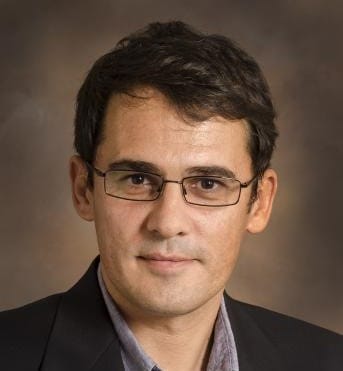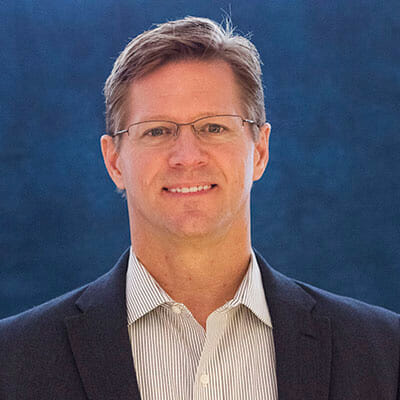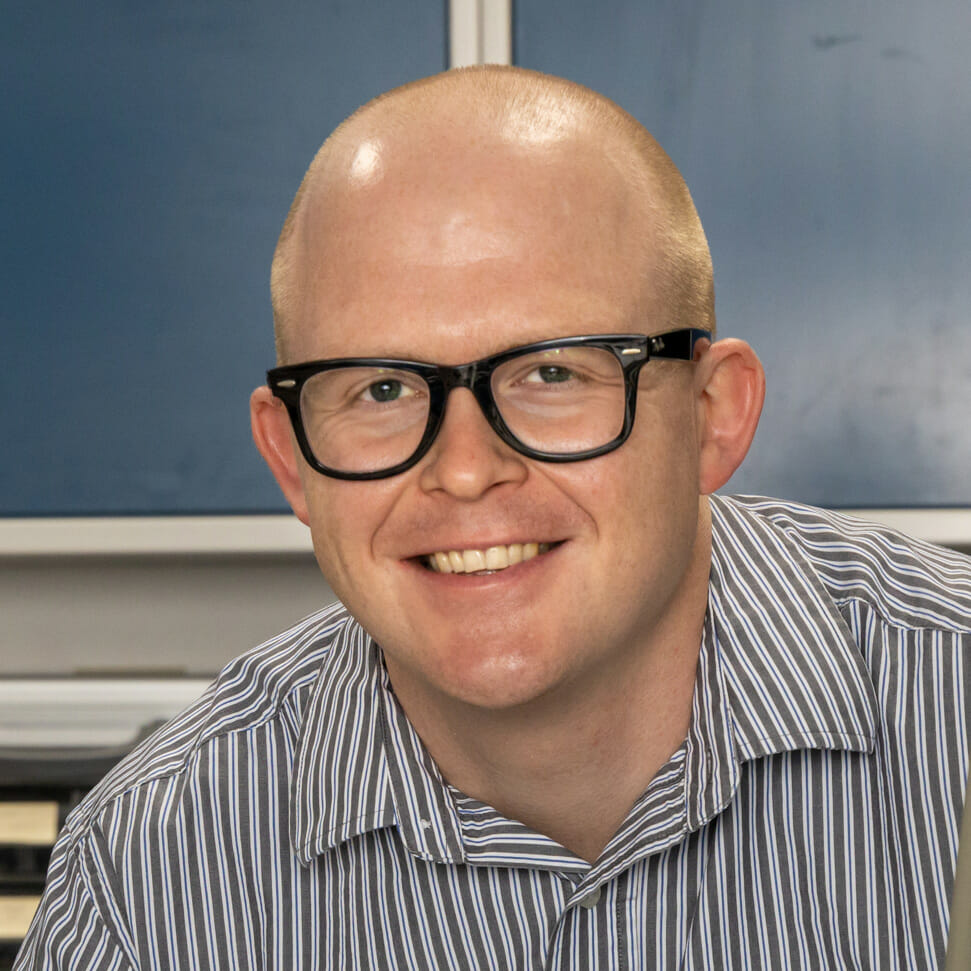Quantum Networking and Communications

Working at the speed of light
Our research supports entangled quantum systems that share properties with other quantum systems far away from them. Harnessing end-to-end entanglement, quantum networking would allow a computer to be entangled with a device potentially on the other side of the world — interacting with them at unprecedented sensitivity and security, on demand.
Entanglement refers to a group of particles that are so intertwined that actions performed on one can impact the others, even when they are very far apart from each other — like rolling two dice and getting matched numbers every time.
Our work in entanglement could eventually lead to the creation of a powerful quantum internet and safer communication between systems, among other groundbreaking advancements.
Bolstered by strong partnerships in academia and with industry including IBM, Dell Technologies and Quantinuum, the Quantum Collaborative also aims to usher in the next generation of quantum innovators.
Steering committee

Guoliang (Larry) Xue
Professor, School of Computing and Augmented Intelligence, Arizona State University
Expertise: Entanglement Routing in Fiber-Based Quantum Networks, Entanglement Distribution in Satellite-Based Dynamic Quantum Networks, Network Optimization and Network Security

Ivan B. Djordjevic
Professor of Electrical and Computer Engineering and Optical Sciences, College of Engineering, The University of Arizona
Expertise: Optical Communications and Networks, Quantum Communications and Sensing, Classical and Quantum Error Correction, Wireless Communications

Brian T. Kelley
Associate Professor, Electrical and Computer Engineering, University of Texas at San Antonio
Expertise: 6G Communications, Internet of Things, Software Defined Radio, Quantum Communications

John J. (Jeff) Prevost
Associate Professor and Cloud Technology Endowed Professor, University of Texas at San Antonio
Expertise: Cloud Computing, Sensor Networks, Quantum Information Theory, Blockchain

Linbo Shao
Assistant Professor, Bradley Department of Electrical and Computer Engineering, Virginia Tech
Expertise: Integrated Photonics/Phononics (PhoXonics), Nanofabrication, Diamond Color Centers

Joseph M. Lukens
Senior Director, Quantum Networking and Research Professor, Arizona State University
Expertise: Photonics, Quantum Networking, Lightwave Communications, Bayesian Inference

César Vargas-Rosales
Leader, Innovation in Smart Digital Technologies and Infrastructure, Tecnológico de Monterrey
Expertise: Wireless Communications, Signal Processing, Quantum Optimization, Quantum Error Correcting Codes, Quantum Routing, Stochastic Modeling
Research activities
Quantum networking
Quantum networks will fundamentally change how we communicate, enabling unprecedented functionalities in quantum computing, security, and sensing. Practical approaches for quantum networks that integrate seamlessly within the existing fiber-optic infrastructure provide a promising foundation for a quantum-connected future.
Quantum optics
Entangled photons exhibit correlations that are unattainable with classical light, making them desirable in applications ranging from secure communications to high-speed computation. Pulse shaping and electro-optic modulation of such quantum states offer new levels of control over these quantum resources and their rich spectral and temporal properties.
Integrated phoXonics
Hybrid integrated devices can enable many novel functionalities in multi-physics systems for applications such as signal processing, sensing, and quantum information. New possibilities are available with integrated hybrid devices combining optics, acoustics, microwave, and diamond defect centers.
Quantum information theory
Advances in quantum information theory have led to the use of quantum key distribution (QKD) in securing communication channels. Exciting opportunities are developing to apply QKD in new security frameworks for emerging cyber-physical systems (CPS), such as Cloud-Based 5G Cellular Communication, swarm robots, and sensor networks.
Acknowledgment Statement for the Quantum Collaborative
Publications/proposals/projects/research using resources provided by the Quantum Collaborative are requested to include the following acknowledgment statement:
The Quantum Collaborative, led by Arizona State University, provided valuable expertise and resources for this (research/proposal/publication/project). The Quantum Collaborative connects top scientific programs, initiatives, and facilities with prominent industry partners to advance the science and engineering of quantum information science.
